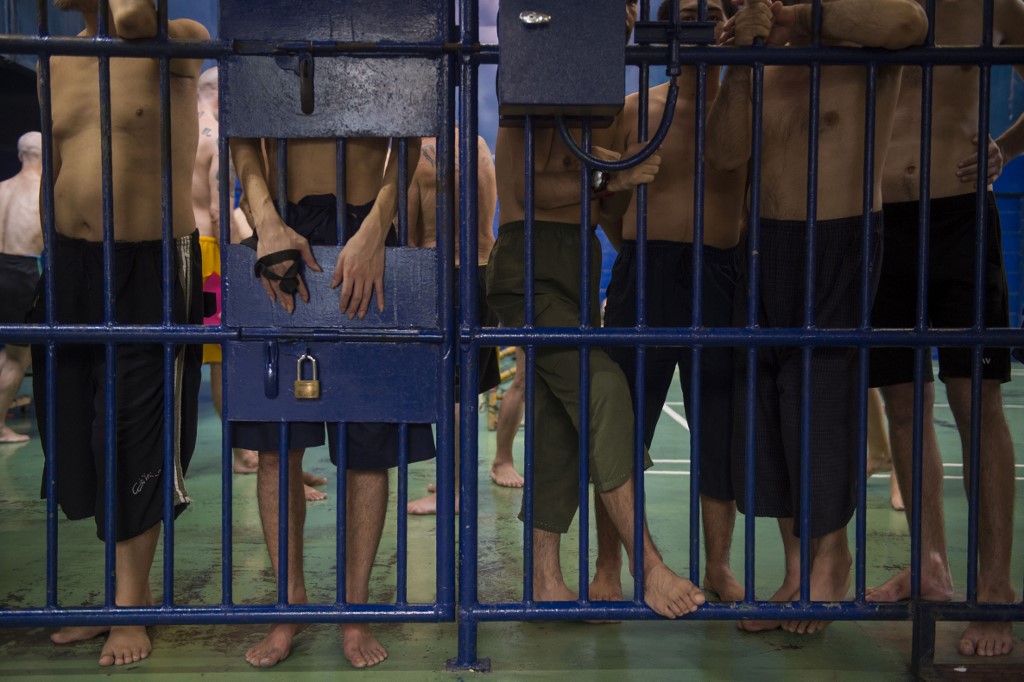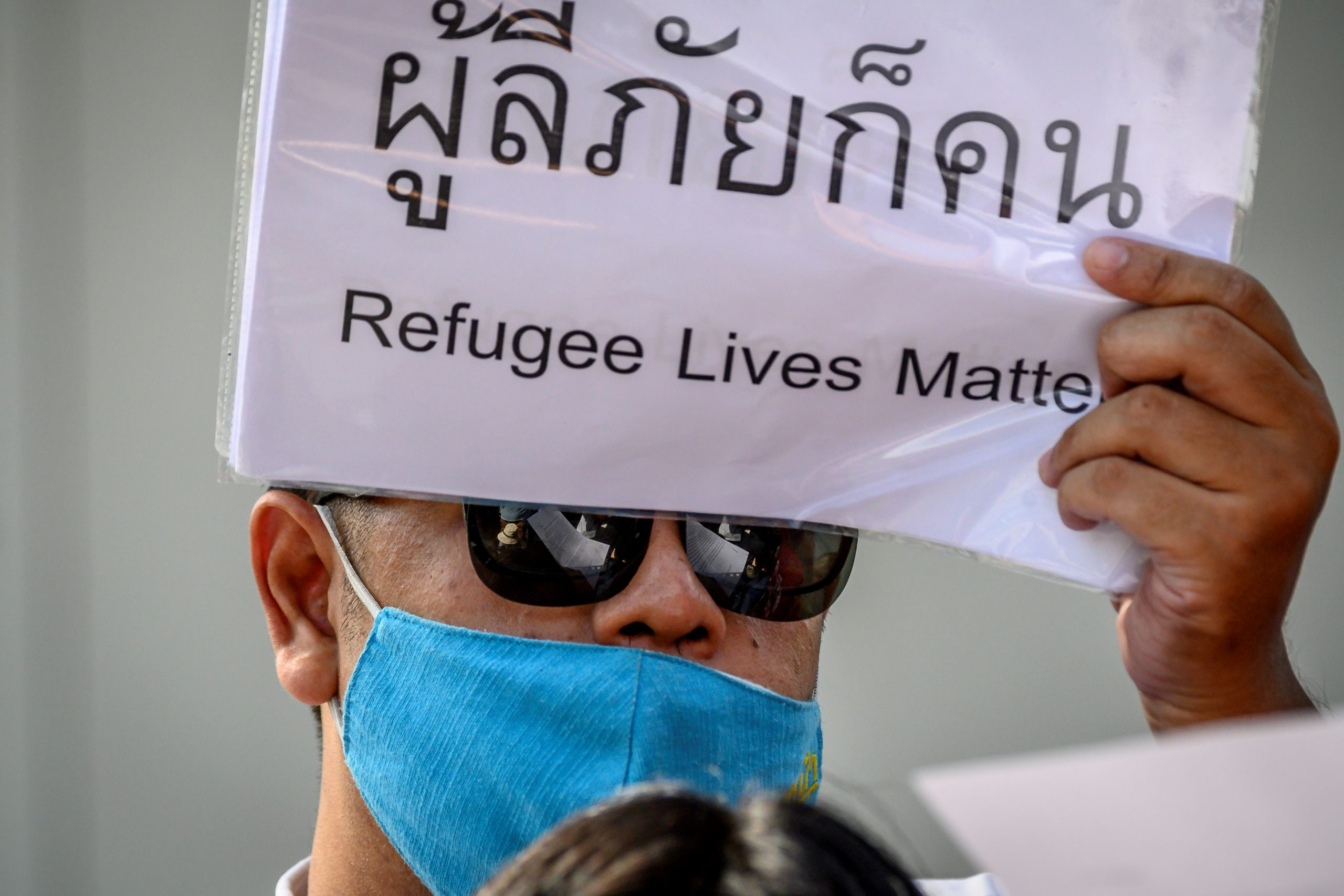Mohammad, with his slim-fit jeans, stylish haircut, calm demeanour and gentle smile resembles any other tourist as he sits in the sleek surroundings of a Starbucks in a central Bangkok mall.
But his past is much darker than that of a typical vacationer. The 21-year-old refugee hoped for a brighter future when, as an unaccompanied minor, he was trafficked to Thailand six years ago from his native Somalia after his father was killed in clan conflict.
Though the United Nations refugee agency in Bangkok, UNHCR, recognised Mohammad’s refugee status in 2017, to this day he is still waiting for resettlement. He holds dreams of living in Canada, but the pandemic has laid waste to already slim hopes of starting a new life abroad and extended his six-year journey indefinitely.
“I need help finding a way to get out of this place. I have been waiting for six years, I have not received any answer from UNHCR,” Mohammad told the Globe last week. “It is difficult for me to survive in this situation, I have no medical treatment, education and no job.”
Refugee resettlement has been sharply declining across the world in recent years. But the pandemic has only hastened this trend, with reports in recent weeks highlighting the shrinking resettlement quotas of the US and Australia, leaving many refugees in Southeast Asia facing yet another hurdle to a fresh start.
As of August, of the 26,015 refugees worldwide who have submitted for resettlement this year, 46% have been resettled – a steep decline on previous years which saw an average of 77% resettled between 2016 and 2019. In absolute terms this represents a sharp drop too, with just shy of 11,900 refugees resettled so far in 2020 compared to the more than 64,000 resettled last year. In 2016, the year Trump assumed office, this figure was as high as 126,000.
Jennifer Harrison, UNHCR’s associate external relations officer in Thailand, told the Globe that while average folks have had trips abroad grounded by pandemic conditions, for many refugees, travel restrictions have shattered hopes at starting a new life in a third country.
“While the temporary suspension of departures for refugees to travel to countries which have offered to resettle them has been lifted for certain countries, there are still severe disruptions in general for international travel, including closed borders, extensive flight cancellations,” she said. “To avoid refugees and their families getting caught up in these situations, travel to many resettlement countries remains suspended.”
While awaiting resettlement, refugees in the region like Mohammad live in fragile conditions, with no way to earn a stable income and stripped of basic human rights. Already living a life of heavy restrictions in the Thai capital, when a Covid-19 curfew was imposed in Bangkok from April until June, Mohammad became even more confined to the walls of his apartment. While he longs to play football and go to parties like a typical 21-year old, if he is caught, he will be forced into an Immigration Detention Centre.
“I don’t go anywhere in Bangkok, I just stay at home. I don’t have a passport so I can’t get [an] education,” Mohammad said. “I can’t go to university, I couldn’t go to high school.”
Thailand, a regional hub for asylum seekers currently hosting a population of 96,777 refugees, is not a signatory to the 1951 UN Convention Relating to the Status of Refugees. The kingdom relies mainly on local NGOs, as well as major players like the International Organization for Migration (IOM) and UNHCR, to provide most day-to-day services for refugees within their borders. In practice, this means that those like Mohammad are rendered illegal aliens and cannot obtain jobs or receive public services, forcing them into poverty.
“I cannot go outside. They said there was a lockdown in Bangkok, so if I get Covid-19 I can’t go to the hospital. Who’s providing money [to pay for treatment]?” Mohammad said. “I feel lonely, I don’t have parents or family, every day I’m alone.”
Even before the pandemic, resettlement was an extremely difficult and lengthy process, with this only getting harder as refugee quotas contract in key countries.
For the 2020 fiscal year between October 1, 2019 and September 30, the US’ refugee quota – a number set by the president in deliberation with Congress – stood at 18,000. However, in practice only 11,814 refugees were admitted by the end of last month, with the country refusing virtually all new asylum applications since February under a public health rationale.
Once the world’s top destination for refugees, the 18,000 figure is the lowest the cap has been since the passage of the US’ Refugee Act of 1980, and part of a wider trend that has seen the cap steadily falling from its peak of 240,000 in 1980. On October 1 the ceiling was lowered even further, as Trump cut the cap to 15,000 for the 2021 fiscal year. This accelerated drop in US resettlement has come as the global refugee population has increased 50% over the past five years to 26 million.
Similarly, in Australia, it was announced earlier this month that the government’s 2020-21 budget shows the island nation is set to cut funding to its resettlement programme by about $700 million as a cost-saving measure in light of the pandemic’s hit to the economy. In practice, this means a cut of 5,000 places in refugee admissions, dropping from 18,750 to 13,750.

For refugees like Mohammad, this means that even after six years of waiting in limbo, as a young, single male he remains a low priority for resettlement.
“Being considered does not necessarily result in being resettled, and as such there is no resettlement ‘wait list’,” UNHCR’s Harrison said. “For example, the time spent as a refugee in a country of asylum is not considered as a criteria for resettlement.”
The situation is the same across Southeast Asia, with flight cancellations and closed borders keeping refugees’ futures in limbo region-wide.
JN Joniad, a Rohingya refugee, fled his native Myanmar after violence and unrest in Rakhine state in 2012. After fleeing to Thailand and eventually on to Indonesia, he has remained between the city of Makassar in South Sulawesi province and Jakarta ever since, unable to reach his intended final destination of Australia.
Like Mohammad, as a young man without a family, he is low on the resettlement agenda and has waited seven years to restart abroad. In February, he applied for sponsorship in Canada – an already lengthy process before Covid, he said, with the Canadian website at the time stating a wait of 15 months.
“Sometimes applications are sent back and forth when they have not addressed the important information or have made errors. Some applications fail to meet the requirements,” he said.
JN’s application was delayed two months because of Covid-19, with it only processing in May. However, though the resettlement cogs may be turning in theory, in practice Canada’s borders remain largely shut, and its sponsorship website states that the country cannot process applications normally, or provide accurate processing times.
I pray for a vaccine to eradicate this virus so I can reach my destiny and start a new life … I’ve already spent my whole life in persecution and detention
As of December 2019, there were reported to be 13,657 refugees across Indonesia, with major communities in the capital Jakarta, as well as the cities of Batam and Makassar. Though Indonesia has sparse domestic law pertaining to refugees, President Joko Widodo signed in 2016 the Presidential Regulation on the Handling of Refugees. The move created a more formalised legal space to handle asylum-seekers but still leaned heavily on international aid organisations to sustain the community.
Indonesia, like Thailand, is not a signatory of the 1951 Refugee Convention, and so refugees cannot own property, get a driver’s license, or work. Many refugees in Indonesia have waited even longer than JN, with some of his acquaintances in limbo as long as 14 years, he said.
As a vocal advocate for the refugee community in Indonesia and a citizen journalist, JN has attracted the attention of authorities. Consequently, earlier this year, the 27-year-old had to leave Makassar to Jakarta, and no longer receives assistance from any organisation.
“I pray for a vaccine to eradicate this virus so I can reach my destiny and start a new life,” he said. “I’ve already spent my whole life in persecution and detention, living as an illegal immigrant and now living as an unwanted refugee in a country where my human rights don’t exist. It’s like Covid-19 came to my life to ruin my future again.”
While the situation currently looks bleak for the likes of Mohammad and JN seeking resettlement, the upcoming US elections could just provide some solace as Democratic presidential nominee Joe Biden has promised to increase the US quota to 125,000 per year should he be elected next month. This would go some way in getting the resettlement machine moving again, and perhaps spur other countries to follow suit.
In the meantime, JN wishes that resettlement countries, whoever their leader, would consider his and others’ plight.
“We are living in some sort of open prison. We are somehow allowed to breathe, but we are not free.”


